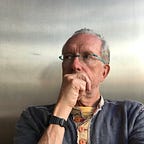Debating Truth
Debating Truth:
Should Academe Invite Donald Trump and his Administrators to Teach and Speak on Campus?
President Trump, and indeed, several of his most senior colleagues are potential candidates for appointment as senior fellows at many colleges and universities. Some on the Harvard and Stanford faculties already have put forward their opinions about inviting such individuals to their institutions. At open letter at Harvard has called for “accountability guidelines” before inviting President Trump or some of his administration to be Fellows or Visitors. Alan Dershowitz, a retired professor, lambasted the idea saying that he would likely not be invited to return to Harvard. “A university can’t pick sides,” he said, suggesting it’s fine to invite Trump or Obama, Clinton or Pompeo.
Some of Stanford University’s medical faculty, and then a larger contingent of the Stanford faculty, also sent out a letter severely criticizing the comments of Dr. Scott Atlas, until recently, President Trump’s physician. He is on Stanford’s medical faculty, and a fellow of the Hoover Institute. They pointed out that a “preponderance of data” called for the wearing of face masks and social distancing during the pandemic, but Professor Atlas said the opposite. Some have called for severing the arms-length relationship Stanford has with the conservative Hoover Institute.
Who should be on a university’s faculty speaks to a central controversy of the Trump administration. The president’s counselor, Kellyanne Conway, said in the early days of Trump’s presidency, that they would employ “alternative facts” when debating issues such as how many people attended the inauguration. The President has constantly derided the news media as “fake news” when they ran articles critical of his policies. The rise of Q-Anon and other conspiracy-related websites has put forward the idea that a deep state of malevolent Democrats, pedophiles, and leftists run the country, frequently from the basement of a pizza parlor in Washington DC. Over three-quarters of Trump voters believe that President-elect Biden stole the election even though there is no credible evidence of fraud. Even after the attempted coup by Trump loyalists close to 80% of his voters said they would still vote for him.
The university is devoted to the search for truth. Who searches for that truth matters. We would not want a scientist on the faculty who believes that the sun revolves around the earth, or an historian who confuses Washington with Lincoln and says in class that Lincoln fought in the American Revolution and Washington was President during the Civil War.
Some facts are less certain. One of the University of Southern California’s Nobel Laureates, Arieh Warshel, proved his ground-breaking work in theoretical chemistry through trial and error. The noted historian Kevin Starr’s multi-volume epic of California’s history was open to interpretation and debate. Those chemists and historians in each scholar’s area, however, were able to make judgements about the quality of their research and the excellence of their work.
Should a college or university appoint someone who is a notable individual, regardless of what that individual has done? A useful debate might be had about whether a science department could hire someone who denies that there is climate change, or whether a theology department should hire someone who believes the Bible is (or is not) infallible and inerrant. Certainly, a faculty member should determine what takes place in their class. If a science professor wanted to invite a climate change denier to a class, then that individual should be welcome. Similarly, if a political science professor wanted to invite Secretary Pompeo to a class then the invitation should go forward.
I am hard-pressed, however, to think of what viable argument might be put forward to enable President Trump to serve on a University’s faculty, based on his service as President. Whatever accomplishments his administration has had, pale in relation to the culture of government that he has fostered. His falsehoods and lies number in the thousands. He has attacked the essence of democracy by refusing to acknowledge the results of a free and honest election, and then attempted an internal-coup d’etat.
The raison d’etre of academic life is that truth matters. Who teaches those truths also matter. A central component of any democracy is our confidence that what students learn, and what professors teach is oriented toward that search for truth. By side-stepping such a discussion, not only weakens academic life but also shortchanges democracy.
William G. Tierney is University Professor Emeritus at the University of Southern California and author of Get Real: 49 Challenges Confronting Higher Education (SUNY).
